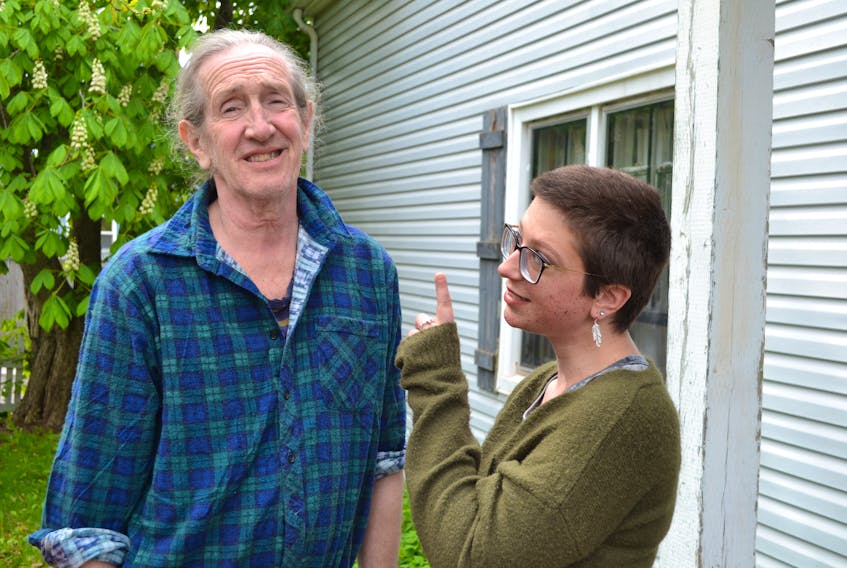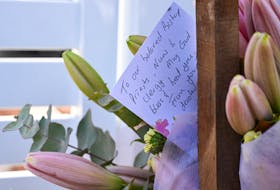Lorne Elliot used to have me in stitches.
I was a faithful listener of “Madly off in all Directions,” the comedians old CBC Radio show.
It was high-energy humour, with fun monologues and hilarious guests.

The show’s run ended in 2006 and Elliott slid off my radar.
But for a few minutes Friday afternoon, Elliott was front of mind, after reading a story by arts journalist Sally Cole.
Turns out, Elliott was returning to a Charlottetown stage after a break, a hiatus following the 2017 death of his wife, Françoise Doliveux.
“I do not recommend becoming a widower. It was a kick in the head and the heart. It was crippling. For the first time in my life I felt, ‘What is the point?’ ” Elliott told Cole, who writes for The Guardian.
Doliveux was also Elliott's manager and had helped guide many creative endeavours.
“She had sense. She knew what worked and what didn’t ... If it wasn’t for her, I would still be playing bars. So, apart from everything else, she gave me a career, gave me a life.”
I spent a few minutes thinking about Elliott’s loss, how it impacted him, and the range of emotions he must be feeling in staging an original play in his wife's absence.
I was also thankful he had opened up to Cole.
It's a testament to the trust Cole had built with Elliott in the short relationship that is an interview with a reporter.
Cole has a knack for getting people to open up, so I sent her a note and asked for her secret.
"Getting someone to open up takes time,” she replied. “It's trust-building. You have to build the conversation to a point where you are able to empathize with the person you're interviewing.
Find out something about them that relates to the story. Ask them about it. Then paraphrase what they tell you, so they realize you understand... It's at this point you can ask them what it's been like for them or some other question that will open the flood gates."
Getting people to open up is a continuous goal for journalists. The aim is to gain insight into people's experiences to help tell more meaningful stories.
Getting people to open up is a continuous goal for journalists. The aim is to gain insight into people's experiences to help tell more meaningful stories. That really shines through when the interviewee and the subject establish a trustworthy connection, like Cole had with Elliott. It results in stories that are compelling, insightful and provocative.
I reached out to a few other journalists about how they get people to open up. One of them was The Chronicle Herald's Andrew Rankin.
“Wouldn’t say I have a secret,” he replied.
Rankin said his interviews are usually more like informal conversations than formal question and answer sessions.
“I enjoy getting to know the person I’m talking to and I'm drawn to underdogs of society. I think people sense these things about me and are sometimes willing to trust me.”
Rankin added that he likes giving people the opportunity to have their voices heard so he does a lot more listening than talking.
“I think people want to open up about their struggles, but they want to be understood without judgement. So, I challenge myself to be that person.”
I do too. It results in better storytelling than riding madly off in all directions.
Steve Bartlett is SaltWire Network's senior managing editor. Reach him at [email protected].
RELATED









